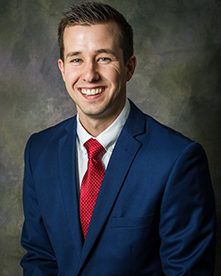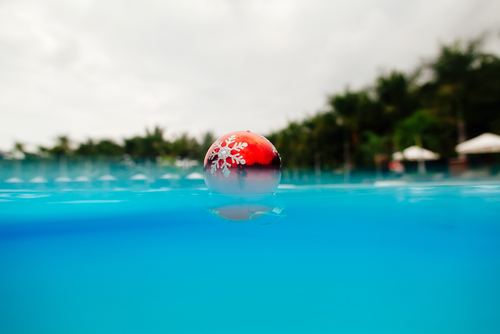“Drought ranks as the single most common cause of severe food shortages in developing countries, so this is a key issue for Caribbean food security.” – Deep Ford, United Nations’ Food and Agriculture Organization Regional Coordinator in the Caribbean

A new report from the United Nations’ Food and Agriculture Organization (FAO) warns that a change in weather patterns is expected to increase the intensity and frequency of droughts in the Caribbean.
The FAO is urging countries of the region to enhance their capabilities to deal with this and other extreme weather-related challenges to ensure food security and hunger eradication.
The Caribbean already experiences drought-like events every year, with low water availability often impacting agriculture and water resources.
The region also experiences particularly intense dry seasons in years when El Niño climate events are present. The impacts of this are usually offset by the next wet season, but wet seasons often end early and dry seasons last longer. The result, the FAO noted, is that annual rainfall is less than expected.
For the last 3 to 5 years, Puerto Rico and the U.S. Virgin Islands have experienced uncommonly dry weather. According to the US Department of Agriculture (USDA), Puerto Rico and the U.S. Virgin Islands (USVI) are in the grip of a historic drought. Eastern Puerto Rico, eastern parts of St. Thomas and St. John, and the entire islands of Vieques, Culebra, and St. Croix have been without significant rainfall for many months. Over 86% of Puerto Rico and the USVI now have a water deficit.
The USDA has designated St. Croix, US Virgin Islands as a “primary natural disaster” area due to damages and losses caused by the drought. According to a press release issued last year by the agency, the drought has affected the territory since April 1, 2015.
St. Croix farmers already see the effects of this disaster. Severe drought has parched pastures, dried up ponds, and killed a large number of livestock, according to the USDA.
No one can change this strange weather pattern but we can, all of us, try to do something to mitigate effects that scientists had always predicted would result from global climate change: loss of sea ice, accelerated sea level rise, and longer, more intense heat waves.
Since 2010, a company called Ocean Thermal Energy Corporation (OTE) has attracted more than 600 investors who enthusiastically support OTE’s mission of delivering base-load (24/7) renewable energy, seawater air conditioning systems, and water for drinking, bottling, and sustainable food production. I am a significant investor with OTE and serve as its Chairman of the Board.
 OTE recently received approval (Docket 659) from the US Virgin Islands Public Services Commission (PSC) to build a commercial grade Ocean Thermal Energy Conversion (OTEC) system producing fossil-fuel free energy together with potable and bottled water. The mission of the PSC is to, “Regulate all public utilities operating in the territory to ensure a fair and reasonable rate of return while providing the rate payers with the highest quality service in a safe, consistent, and efficient manner.” This is a move that will no doubt help the people of the US Virgin Islands with their current drought issues and spur economic development.
OTE recently received approval (Docket 659) from the US Virgin Islands Public Services Commission (PSC) to build a commercial grade Ocean Thermal Energy Conversion (OTEC) system producing fossil-fuel free energy together with potable and bottled water. The mission of the PSC is to, “Regulate all public utilities operating in the territory to ensure a fair and reasonable rate of return while providing the rate payers with the highest quality service in a safe, consistent, and efficient manner.” This is a move that will no doubt help the people of the US Virgin Islands with their current drought issues and spur economic development.
OTEC is a technology that is well proven, with systems operating at various test and commercial operations at several locations. At the Natural Laboratory of Hawaii (NELHA), an OTEC plant produces electricity and water from the ocean without the use of fossil fuels. More than 40 successful business are now established at NELHA, using the seawater from the deep ocean OTEC pipes for aquaculture and agriculture. This deep ocean water is also desalinated and used for drinking, biofuels production, and nutraceuticals creation – to name a few.
Just imagine how wonderful it will be to replicate the NELHA success story and solve energy, water, and economic development challenges around the world!
It’s not just OTE that is supporting solutions to combat the effects of climate change in the US Virgin Islands and elsewhere. Professor Kostas Alexandridis of the University of the Virgin Islands testified to a US Virgin Islands senate committee on April 6, 2016, presenting information on the importance of OTEC. According to Professor Alexandridis, we have to start thinking about climate change adaptation now if communities are to have any meaningful response in the next 30 to 50 years.
As an entrepreneur, I’ve always relied on the facts before making an investment or becoming involved with a new venture. The facts as I see them are:
- OTEC is ready for commercialization now with a working test plant in Hawaii.
- Many different sustainable businesses utilize the deep ocean water from the Hawaii OTEC plant to grow fish, irrigate and grow crops, desalinate water for drinking, and a number of other uses.
- Poor communities around the world will never prosper as long as they are tethered to the high cost of imported fossil fuels, are desperately short of water, and lack economic development opportunities.
- OTEC can provide solutions to many challenges while at the same time bringing relief, a better way of life, and improved health outcomes for millions of people around the world.
I believe the future is OTEC. Join me in supporting OTE’s mission and investing in this future.








